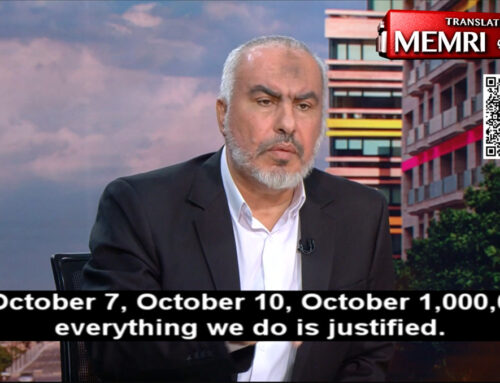The Spiritual Killing Power of Church Politics
By Ian Hamilton, Editor
Reprinted from the August/September 2022 Issues #707-708
I recently read these words of Thomas Chalmers, recorded in his Journal: ‘Much exercised by the conflicting church politics around me and feel the earthiness of these engrossments… A dreary interval, throughout which the influences of God’s word have been choked and overborne by the thorns of controversy.’
There can be no doubt that there are times when faithfulness to Christ and his gospel necessitate controversy. It can be argued, and many do, that the Disruption of 1843 was a controversy that could not be avoided, though Chalmers did all he could to avoid the Disruption. He understood that controversy was at times necessary, but temperamentally and spiritually did all he could to avoid it. Such a mindset (or perhaps ‘heart-set’?) would greatly enhance and commend gospel ministry in particular and church life in general in this present time.
Chalmers especially wearied of ‘church politics’ (would that all gospel ministers were like Chalmers). He had personally experienced the spiritually deadening influence on his own soul of church politics. He writes of ‘the influences of God’s word (having) been choked and overborne by the thorns of controversy.’ Chalmers was no pietist. He believed passionately in the church’s involvement in society, evangelistically, educationally, morally and socially. Nor did he think that elder sessions, Presbyteries
and General Assemblies were unnecessary and a distraction from the church’s God-given calling. Nor was he averse to passionate discussion and debate within the church’s courts. What grieved the great man was
that the church’s spiritual mission could be hindered, even marginalized, by ‘the thorns of controversy,’ ‘the earthiness of these engrossments.’
One of Satan’s primary ‘methods’ (the word Paul uses in Eph. 6:10) for troubling, distracting and dividing Christ’s church is to absorb it in its internal organization. Martin Luther described sin as that which turns us in upon ourselves, ‘incurvatus in se.’
In these present dark and darkening times, the church of Christ, especially in the West, has been sucked into the politics of the age, by way of the politics of the church. It seems that unless you are engaging from the pulpit with the sexual, racial, geo-political issues of the age, you are ignoring what is most vital to society’s wellbeing. Please do not misunderstand me. The ‘gospel of God’ (Rom. 1:1) is the most transforming and leavening influence for societal change. When Paul wrote, ‘We preach Christ and
him crucified,’ he was not ignorant of the ugly, vile sins that were present throughout the Roman Empire. He knew that racism, sexism, sexual perversity, dysfunctional families, and abuse of the weak (usually women and children) were endemic. What did he do? ‘We preach Christ and him crucified.’ Was Paul an obscurantist? Was he divorcing religion from the world around it? Did he live in a theological no-man’s land? No!
The New Testament is adamant that the way to change society and its multiplex ills is to address the root of its problems: rebellion against God. As someone perceptively put it, ‘The heart of the human problem is the problem of the human heart.’ In preaching Christ and him crucified, Paul was preaching a message of transforming power. The gospel is ‘the power of God for salvation.’ Notice the verb. The gospel of a crucified Saviour, who died ‘the just for the unjust,’ bearing the condemnation and judgment our sins deserved, was Paul’s unvarying message. It was this good news that not only reconciled sinners to God, but which reconciled sinners to sinners. There is a stellar passage at the end of Galatians 3 where Paul writes, ‘in Christ Jesus you are all sons of God, through faith. For as many of you as were baptized into Christ have put on Christ. There is neither Jew nor Greek, there is neither slave nor free, there is no male and female, for you are all one in Christ Jesus’ (Gal. 3:26-28). The divisions and hostilities that scarred the life of the Roman Empire were annulled in Christ. The message of the cross destroyed the racism, sexism, and religious hostility that were everywhere.
You would have to live in splendid isolation not to be ignorant of the social ills that are dividing and debasing societies throughout the Western world. What is the Christian church to do? We are to do what the early church did: preach Jesus Christ and him crucified.
When I ministered in Cambridge, it never ceased to gladden my heart to look out on a Sunday and see around fifteen nations represented in the congregation. We were a multicoloured, multicultural fellowship. My two fellow open-air preachers were a Nigerian and a Malaysian (they were both more effective than I was). What was it that brought such a disparate group of people together? We all had the same Father. We all were indwelled by the same Holy Spirit. We were all new creations in Christ. We did not stop being black, white, brown. We did not stop being Nigerian, Malaysian, Russian, Chinese, American, Cameroonian, English, Scottish. But through our common faith in Jesus Christ as Saviour and
Lord, we had become ‘family.’ We had become ‘one in Christ Jesus.’ The gospel changes everything by transforming people from the inside out. This is the church’s primary calling, to proclaim Jesus Christ and him crucified.







Leave a Reply, please --- thank you.